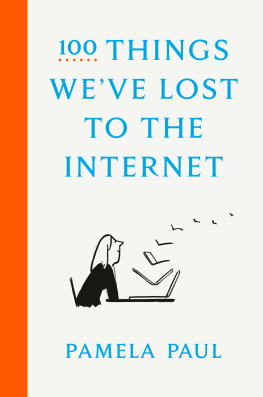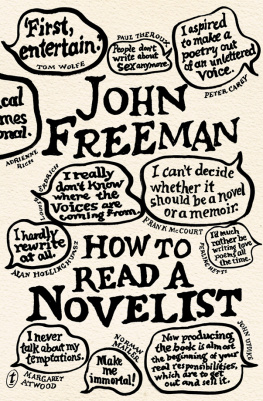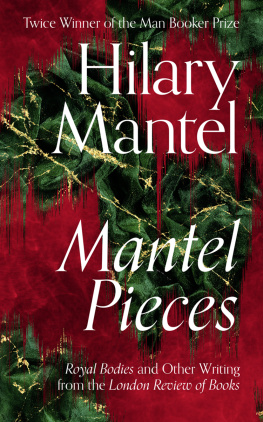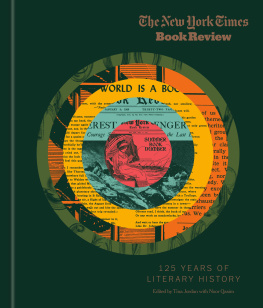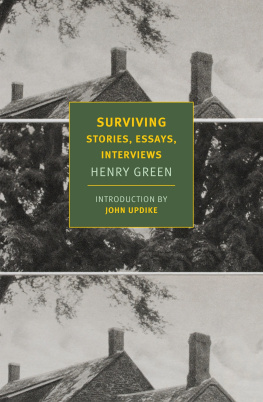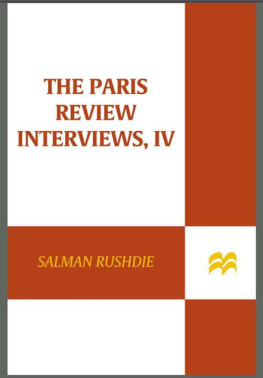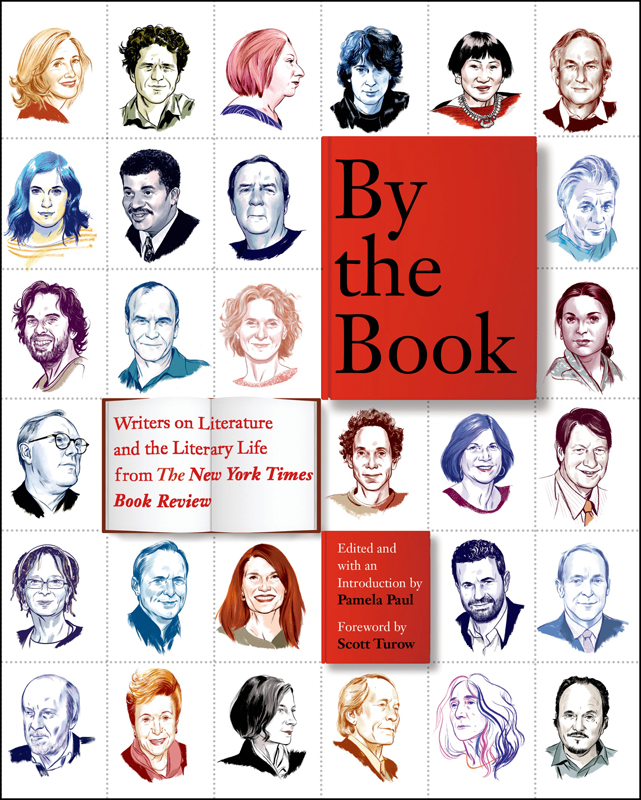Contents
Guide

The author and publisher have provided this e-book to you for your personal use only. You may not make this e-book publicly available in any way. Copyright infringement is against the law. If you believe the copy of this e-book you are reading infringes on the authors copyright, please notify the publisher at: us.macmillanusa.com/piracy.
Contents
Teddy, this ones for you.
Foreword by
Scott Turow
I arrived at Amherst College as a freshman in 1966, possessed by the dream of becoming a novelist, which was immediately when I learned that there were no classes in creative writing in the curriculum. (Naturally, I could have discovered the same thing by paying more attention to the course catalog rather than to the splendid physical setting that had made me fall in love with the school. But I was seventeen.) In time, English professors explained to me that instruction in fiction or poetry writing was worthless, offering no more intellectual content than auto shop or basket weaving.
Eventually, the college relented and hired its first visiting writer, the fine English poet Tony Connor, in 1968. I consulted him eagerly, but he shook his head as soon as he heard me out.
Scott, I know noo-thing about writing noovels, he said in the potent accent of his native Manchester, but if I wanted to be a noovelist, Id stoof myself with noovels.
I didnt need Tonys encouragement to read. I remember lying in bed for two weeks as a freshman, enthralled with The Alexandria Quartet , by Lawrence Durrell, whose four volumes I tore through to the detriment of my classes and assignments.
Yet Tonys remark was a mandate to read another way. Novels, he was telling me, were going to be my best teacher. From the work of other novelists Id learn to define my taste, to judge what authorial strategies worked or didnt, to figure out how good sentences and paragraphs and stories were constructed. For years after that, I didnt merely read, I reread, then read again, writers and passages that filled me with wonder. Tillie Olsen. James Joyce. Robert Stone. I must have read Updikes Rabbit, Run five times and Bellows Herzog even more than that, thinking about the choices that governed every word, each chapter. Over time, the comparison with my own work also made me recognize what was sadly out of reach.
To some degree, reading is an instrumental activity for all of us. While most readers dont try to mine the secrets of craft in the determined way I did, all of us experience a minute, incremental intellectual bonus every time our eyes cross a page. Neuroscientists almost certainly will be researching for decades how our sense for the nuances of language and syntax expands, how we gather and contrast constellations of ideas from what we consume as readers.
Yet for most of us, writers and readers, the passion for books goes in the category of an enigmatic and sui generis desire. Even for those of us who have made our way by putting words on paper, the commitment to literature has almost always preceded the urge to write. In my own By the Book interview (), I recount how my will to be a novelist began to form the first time I was totally captured by a novel. That was at age ten when I read The Count of Monte Cristo , by the older Alexandre Dumas. If it was that exciting to read a book, I reasoned, then it had to be even more thrilling to write one, to feel the story come to life inside you over an extended period of time. But it was a long while, with many more novels taking hold of me, before I actually tried writing fiction myself.
I read most of these columns as they appeared, because they have become my favorite part of The New York Times Book Review . I relish the company of other writers, maybe for the same reason dogs love other dogs. Yet over the years Ive come to realize that what an individual writer has to say about his or her creative process will tell me as much about how to write as the body styling on a car is liable to reveal about how its engine runs. On the other hand, what someone reads is almost always telling. One of the saddest parts of the portended decline of physical books is losing the self-revelation that people casuallyor sometimes with great calculationmake with the volumes they place in view on their shelves.
When the reader is a writer I admire, there is even more news contained in her or his reading habits. At a minimum, Im likely to hear about or recall a book I think I should read, an opinion that gathers force when the suggestion repeats what Ive heard before. More subtly, a fine writers reading passions are often a window into his or her mind and the deeper process of literary taste and judgment that may not be visible on the page.
Because Pamela Paul, who edited these columns for the Book Review , often put the same questions to a number of participants, I couldnt help being struck by certain answers. When I responded that among writers living or dead, Id choose to hang around with Shakespeare, I knew I wasnt being particularly original, just honest. Yet I was cheered to realize that my fantasy was shared by at least ten other respondents, each of whom I greatly admire.
Even more interesting to me were the answers to the Book Review s question about the works individual writers found particularly remarkable or disappointing, especially the varied responses about James Joyces Ulysses . One thing I thought Id learned as a college freshman was that Ulysses held the number one ranking in the race for the title of Greatest Novel Ever Written. Outsized reverence for Joyces work seemed to have begun decades before with T. S. Eliots pronouncement, I hold this book to be the most important expression which the present age has found. Even a novelist as seemingly different from Joyce as Hemingway had named Ulysses as the last book that had influenced his writing.
The summer after my freshman year I found myself working as a substitute mail carrier in one of the tony North Shore suburbs outside Chicago. The post office was an intriguing place (just see short stories by Eudora Welty and Herman Melville). I discovered, after a steep learning curve, that I could sort and deliver the mail on my route in less than the eight hours allotted for the job, but I made the mistake of returning to the post office early only once. I received a very colorful lecture from the chief clerk, who dragged me down to the employee lunchroom in the basement and explained how poorly my colleagues would regard me if I dared show up again before 3:15 p.m., when I was scheduled to punch out.
As a result, I hid in the only air-conditioned public building in town: the library. With an hour or two to spare each afternoon, I decided to improve myself by reading the Greatest Novel Ever Written. During my six weeks with Ulysses , I had a number of observations. First, I swooned over many of the most gorgeous sentences Id ever encountered. Second, unlike other works by Joyce that Id adored, like Portrait of the Artist as a Young Man or The Dead in Dubliners , Ulysses didnt seem to be a novel in the narrow way I thought of that form, that is, as a story which would carry me along because of my emotional connection with one or more characters. I had to work at Ulysses , so much so that it seemed somewhat fitting that the taxpayers of the United States were paying me $2.52 an hour while I read it. Finally, it was startling but instructive that in an affluent community with a sky-high educational level, the librarys lone copy of Ulysses was on the shelf every time I went to find it. I spent many years after that wondering whether Joyces book could really be the greatest novel ever written if no one else in town wanted to read it.


